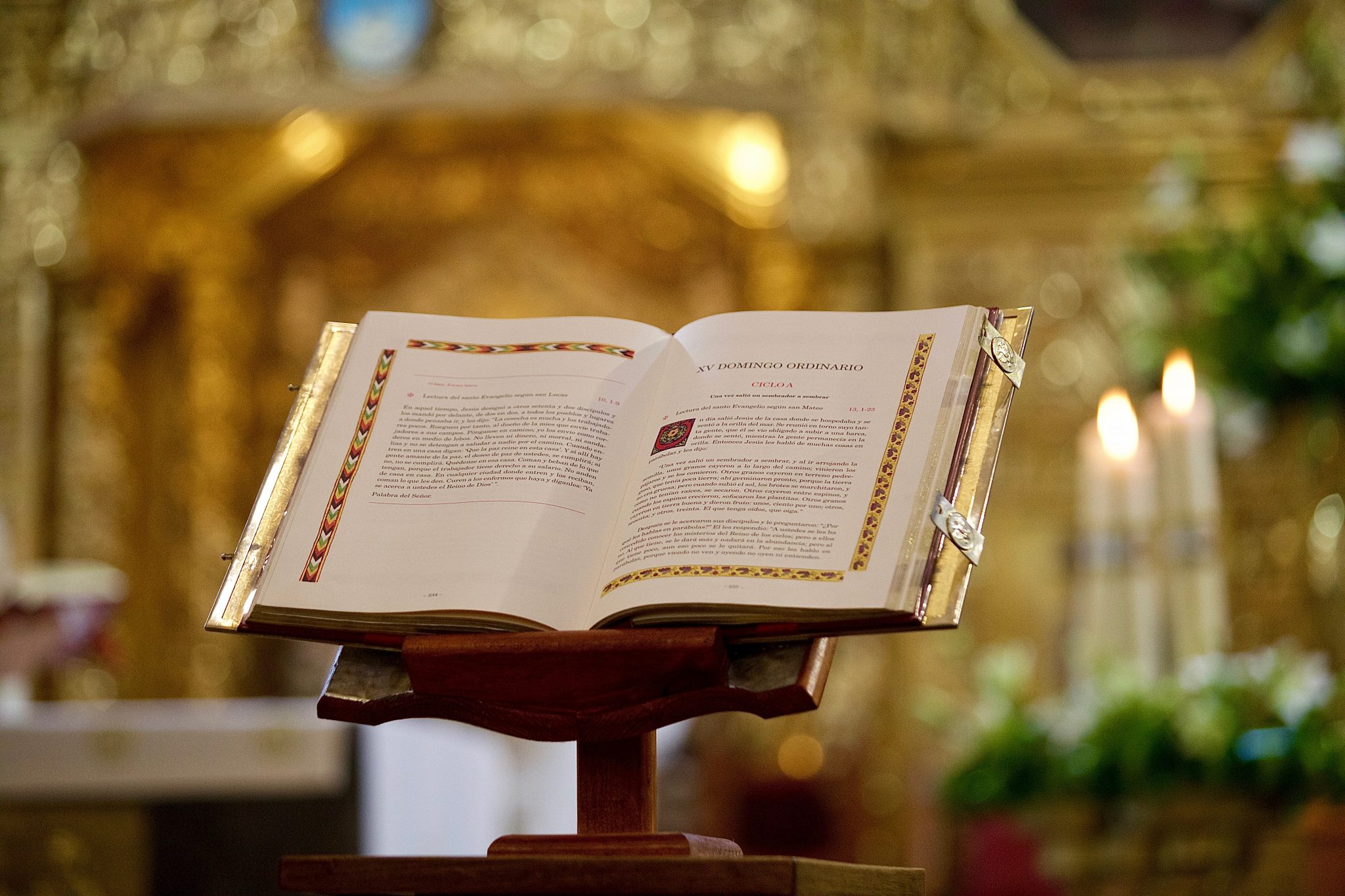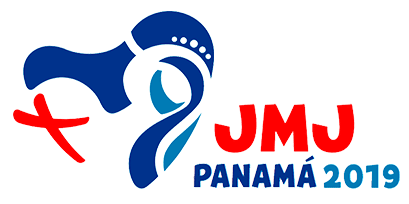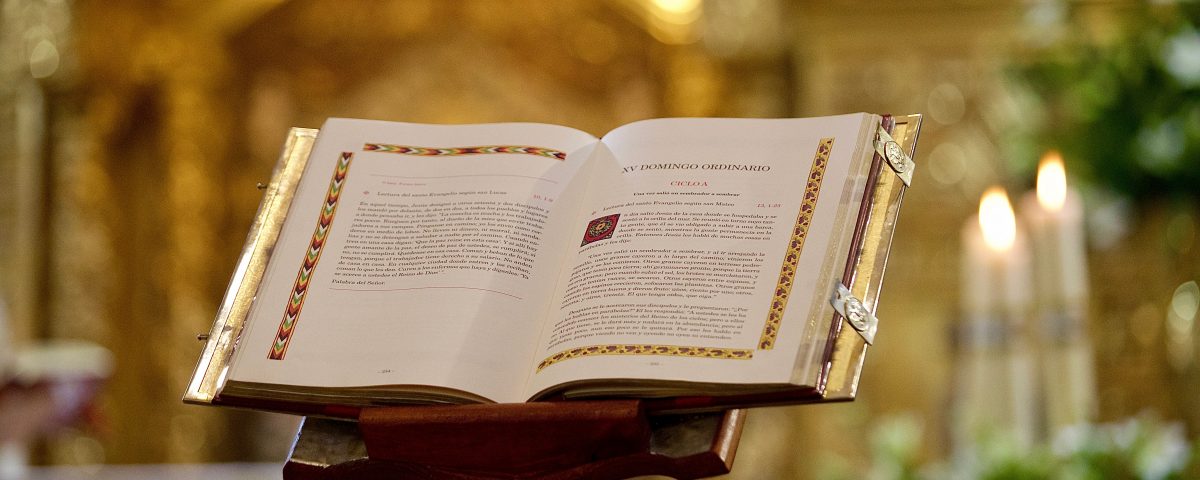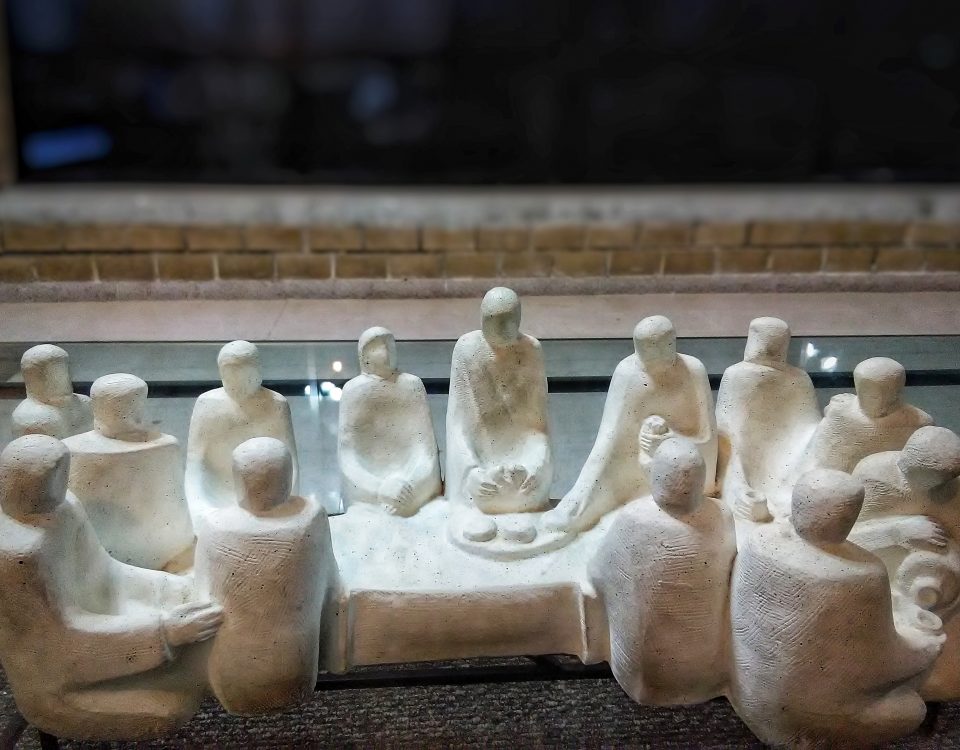«The Word became flesh and dwelt among us»
BIBLICAL TEXT: John 1, 1-18
1.- READING : What does the text say?
This Sunday is framed within the octave of Christmas; therefore we continue to "feast", the joy of the nativity of Jesus remains in our hearts. The reading of this Sunday is known as the "Prologue of San Juan". It is about the first verses as an introduction to his Gospel. With this reading, the Sunday liturgy invites us to reflect on the mystery of the Eternal Word of God, incarnate, living in our humanity.
John presents Jesus as the "Word" of God personified, who "existed" and "was" always with the Father and "was God." These three verbs that John places (exist, be and be), uniting them to what in Greek is said "logos" (that is, expressed Word, verb in action), give us to understand the unity of Jesus, the Christ, the Lord and the Word that God pronounces to save us. That Word infinitely transcends the world and history, but at the same time it is a "creative" Word. "All things were made through the Word," and in it is Life, which enlightens men.
And to reveal to them the invisible face of God and to make them participate in their filiation, that is, to be Sons of God, the eternal Word "became flesh" in the womb of Mary and came to live with men "as the only Son" of the Father . This is the mystery of the incarnation: God now has a human face in the person of Jesus. It is the mystery of the mysteries. God becomes man.
When the evangelist refers to the "beginning", the expression recalls the first chapter of Genesis, but here it does not refer to the beginning of the world, but to the "beginning" in an absolute sense, when there was nothing outside of God. At the same time, John anticipates the theme of the eternal conflict between light and darkness, so prominent in his Gospel. The "light" is the Word, the "darkness" is the forces of evil. True light, capable of satisfying the thirst that man has to see God.
The story is interrupted for a moment to refute the supporters of John the Baptist, who until now considered him the Messiah. It clarifies that the Baptist was only a testimony of the light, but that it was not the Light. Christ, the Word made flesh is this light that overcomes darkness.
"Flesh" in the language of the Bible, designates every man in his weakness to be corruptible. To become flesh means to become a human person, flesh and blood as we usually say. Men, on the other hand, theirs, their people, the world, did not see fit to receive it: they did not know it. There were, however, those who accepted Jesus as the Messiah, the Son of the living God. And this raised them to be Sons of God. The Grace, the Mercy, the ineffable Love of God overflowed on humanity in need and made her a participant in his Glory. This is Jesus of Nazareth, the Son of God, the Word of the Father.
From now on we will see in a panoramic reading of the Gospel of John, this contrast between the Light and the darkness, between God and the evil one, between Jesus and the Pharisees, Priests and connoisseurs of the Law who are not capable of living it.
Rebuild the text:
What is there from the beginning? With whom was the Word? Who is this Word? What was done through the Word? What did John bear witness to? Who was Juan? What is the function of the Word as Light? What power is given to those who receive, and believe in the Word? How does the phrase "The Word became flesh and ... continue? Why is it said that John gave testimony about Jesus? By whom has grace come to us? Who has revealed us to God the Father?
2.- MEDITATION : What does God tell me in the text?
Let's ask ourselves some questions to go deeper into this Word of Salvation:
What does it mean to me that Jesus is the eternal Word? Do I understand that the existence of God is from all eternity? Do I find in the mystery of the incarnation the great love of God for humanity?
What would my life be like, and the life of humanity without incarnation? Would we know God the Father, the way we know him? Do I understand that without incarnation, the Good News would not exist? Thinking this led me to have an attitude of full gratitude? How do I express it? Do I understand that God, in taking a human condition, shows man the image of what he really should be? Therefore I seek to resemble the person of Jesus, in his life, gestures, words, and feelings?
The Word incarnated chose poverty, and humility. Therefore, if God did not choose exuberance or power, what does this say to me? Do I sometimes look for success more than peace? How pleasurable is the truly lasting? To this I remember the example of the incarnation? Am I aware that without incarnation there would be no redemption? Is my Christian life today characterized by finding the right means for redemption, and the mercy of God? Do I understand that knowing the Word of God also drives me to be a missionary and transmit it?
3.- PRAYER : What do I say or tell God?
To pray is to respond to the Lord who speaks to us first. We are wanting to hear his saving Word. This Word is very different from what the world offers us and it is time to say something to the Lord.
Put your word in the middle of my life. Put my life in your hand, put your hand in the voice that I now say. Put the sun in my eyes, put your eyes here, in these questions; your ways trace them in mine. I want to leave in your march, I want to give them your music to my steps. You are the Word made flesh, and you dwell among us, that I can always recognize your illuminating presence of life. Lord of me, gratitude is born today, because you have donated your grace. Do not let us forget your Word, that shows us the route towards the eternal.
- AMEN -
We make a moment of silence and reflection to respond to the Lord. Today we give thanks for his incarnation and because it fills us with joy. We add our prayer intentions.
4.- CONTEMPLATION : How do I internalize or internalize the Word of God?
For the moment of contemplation we can repeat this verse of the Gospel several times so that it may enter our life, our heart. We repeat this phrase of the Gospel several times so that it may enter our heart: «The Word became flesh and dwelt among us» (Verse 14)
And so, we are asking the Lord to be witnesses of the resurrection for others to believe.
5.- ACTION : To what do I commit myself or with God?
There must be a remarkable change in my life. If I do not change, then, I'm not a true Christian.
If I am alone, I read the readings carefully. Today the Lord invites me to preserve the festive and joyful spirit of Christmas. I will commit myself to be an active witness of Christian joy in my family, work environments, or in everyday life. Concrete gestures that express mercy, and the love of God.
In the group, we commit ourselves in these first days of the year, a campaign in social networks, or through billboard, workshops, or meetings to communicate the Mercy of God, including biblical readings, corporal and spiritual works of mercy, etc. We encourage each other to go out to meet the brother, showing the loving "face" of God the Father.







